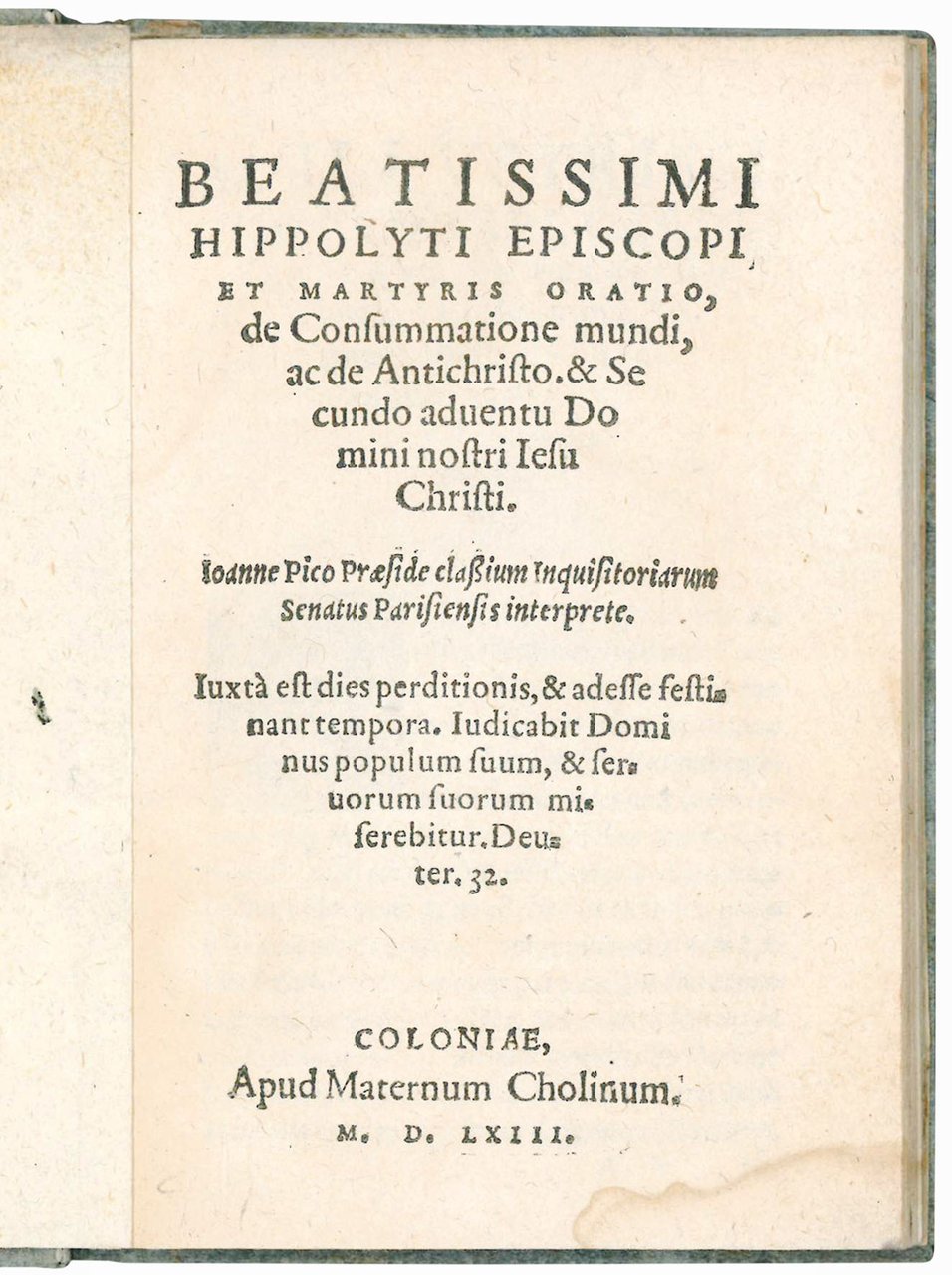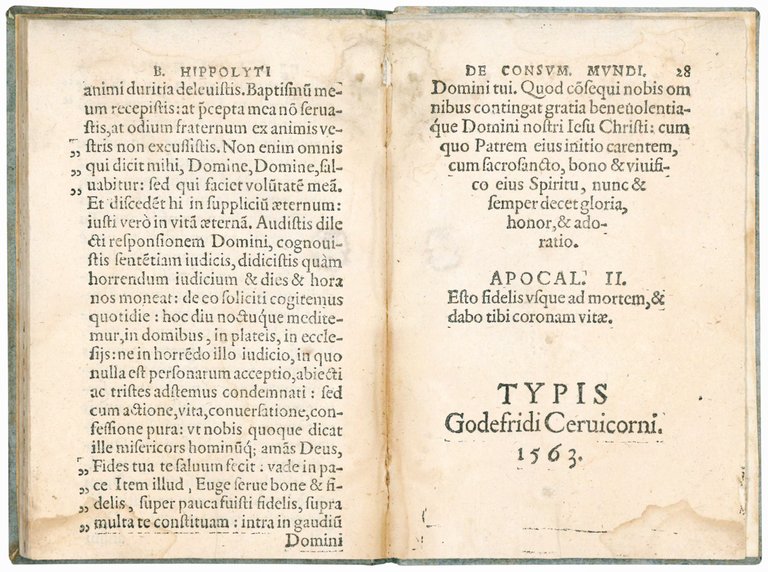Beatissimi Hippolyti episcopi et martyris Oratio, de Consummatione mundi, ac de Antichristo. & secundo adventu Domini nostri Iesu Christi. Ioanne Pico praeside classium inquisitorium senatus Parisiensis interprete
Beatissimi Hippolyti episcopi et martyris Oratio, de Consummatione mundi, ac de Antichristo. & secundo adventu Domini nostri Iesu Christi. Ioanne Pico praeside classium inquisitorium senatus Parisiensis interprete
Payment methods
- PayPal
- Credit card
- Bank transfer
- Pubblica amministrazione
- Carta del Docente
Details
- Year of publication
- 1563
- Place of printing
- Köln
- Author
- HIPPOLYTUS ROMANUS Pseudo (c. 170-235)-PICOT, Jean ed. (d. 1565)
- Publishers
- [Gottfried Cervicornus] for Maternus Cholinus
- Keyword
- Quattro-Cinquecento
- State of preservation
- Poor
- Languages
- Italian
- Binding
- Hardcover
- Condition
- Used
Description
8vo (136x90 mm). [4], 28 leaves. Collation: A-D8. Woodcut historiated initials. Later cardboards. Pale uniform browning, marginal staining, printed marginalia slightly trimmed.
Second edition of this oration, whose attribution to Hippolytus of Rome is debated, on the end of the world and the Antichrist, in the Latin translation by Jean Picot. It was first published together with the editio princeps of the Greek original text at Paris in 1556-1557. It contains a dedicatory epistle to Cardinal Charles de Lorraine from Jean Picot, president of the inquiries at the Paris parliament, and a poem in praise of Picot by a certain Jean Daval (cf. A. Whealey, ‘De consummatione mundi' of Pseudo-Hippolytus, in: “Byzantion”, vol. 66, no. 2, 1996, pp. 461-469).
Saint Hippolytus of Rome was a Christian martyr and also the first antipope (217/218-235). At the end of his life he was exiled to the mines of Sardinia, where he died as a martyr. As a theologian, his writings were often marred by an embittered, controversial tone. He wrote in Greek. His most important work is considered to be Philosophumena, a part of a larger work called ‘Refutation of All Heresies'.
VD16, H-3822; Italian Union Catalogue, IT\ICCU\BVEE\040598; Hoffmann, II, p. 313.


